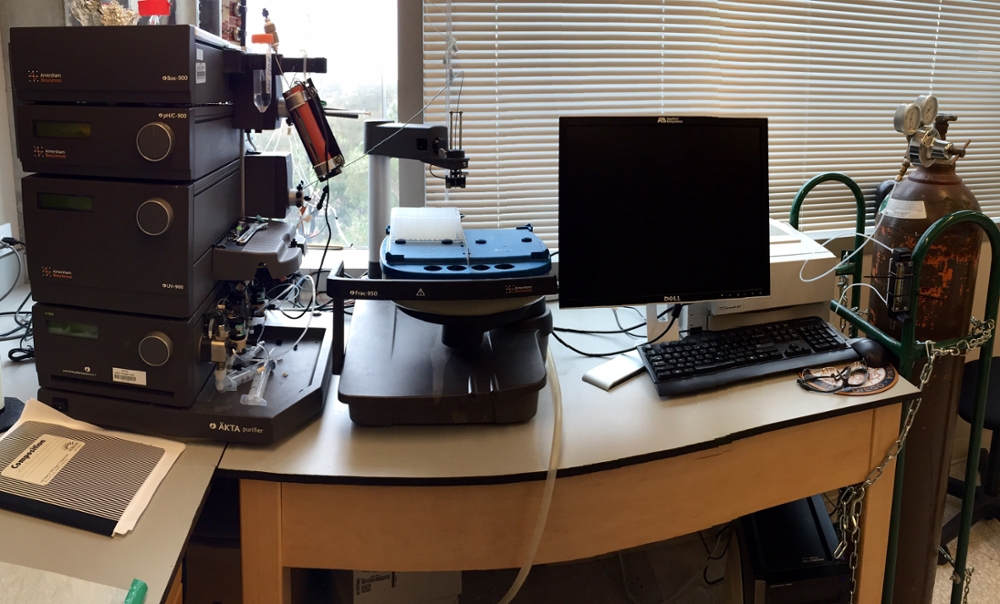Protein Sequencing
- Data Analysis
- High pH Reverse Phase
- MUDPIT
- RP-C18
Multidimensional-liquid chromatography techniques are used to reduce the proteomic sample complexity prior to tandem mass spectrometry analysis to increase peptide identifications. The separation properties depend on the peak resolution in chromatographic dimensions. High pH reverse phase (HpHRP) has been shown to have a higher peak resolution when compared to strong cation exchange (SCX) separation and hence can replace SCX in multidimensional-liquid chromatography techniques (Gilar et al 2005).
Tryptic peptides extracted from proteomes of the interested organisms are fractionated on AKTA using the HpHRP strategy. The fractions are analyzed using LC-MS2 for peptide sequencing using standard low pH reverse phase.
Advantages of off-line HpHRP:
1) High loading capacity (milligrams of sample) for the detection of low abundant peptides.
2) High chromatographic peak resolution which reduces repeated sampling of same peptides in multiple fractions.

The facility is supported by the NIH shared instrumentation grant numbers
S10 OD016234 (Synapt-HDX-MS) and S10 OD021724 (LUMOS Orbi-Trap).
Please reference these grant numbers for publications resulting from data obtained from these instrumentations.
Funds from Moores Cancer Center of UC San Diego